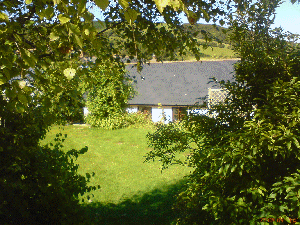
I like the word ‘dazlious’ invented by the character, Linda, in the film Snow Cake (see my last blog post). The Urban Dictionary defines ‘dazlious’ as “an exclamation of beauty and awe” and gives a transcript of Linda’s story which puts the word in context:
"Mr Fantastic from the Fantastic Four, he's got arms made of elastic so they can stretch for two, maybe three hundred miles.
He's been imprisoned in a cave for seven days with no food and no water and no light. But on the 8th day he manages to loosen a rock and push his way up through the top and up into the daylight. Just as the sun is coming up over the mountains and filling the sky with this white-yellow light. And there's this stillness, and in the few minutes he's got before his captor, the evil Dr. Doom returns, he stops for just one second. And all he can hear is his own breathing. But he's totally overwhelmed by how big the world is, how small and unimportant he is. And as he turns around you see his face look to the sky and he says very quietly, so that no one can hear him, he says 'Dazlious.'"
I am one of those ‘charmed by cute contrivances like “dezlious” [sic]’ as one critic in the New York Times puts it. Dazlious is a word I have a use for; I seem to find the world increasingly dazlious. When I do, I want to express it and I have a few stand-by lines from various poems that sneak into my mind. If, for instance, the night is full of stars with a bright moon half-hidden by clouds yet illuminating them, I always think of Keats’ lines: “When I behold, upon the night's starr'd face / Huge cloudy symbols of a high romance” and I say them to myself -- it helps for some reason to express my feelings of awe at the beauty and mystery of the night.
At other times, perhaps coming out of the house into a glorious Spring day, early in the morning when the world seems young and fresh, I find Wordsworth’s lines on the French Revolution on the tip of my tongue: “Bliss was it in that dawn to be alive/ But to be young was very heaven!” At other times, on a day which just seems full of wonder and possibility I might wave my arms around a bit and recite “ O frabjous day! Callooh! Callay! he chortled in his joy” -- although obviously not when there are people around.
So 'dazlious' is a word I've added to this little repertoire. I think we can say a bit more about it than that it’s an exclamation of beauty and awe. To begin with it’s an adjective. It has the adjectival ending “-ous” which gives the meaning “abounding in, characterised by, of the nature of”. Its root is fairly obviously ‘dazzle’ meaning “to blind temporarily or confuse the sight of by overpowering brightness, tempt or delude or startle by brilliant display or prospect”. So we could say it has the meaning ‘an abundance of being dazzled’. However if we simply added ‘–ous’ to ‘dazzle’ we’d be most likely to get ‘dazzlous’ -- dazz-lus, which sounds very lacklustre, the stress is too even and uninspiring. But with ‘dazlious’, just the addition of the ‘i’, giving the sound i: as in ‘deep’, transforms it into a much more delicious word. It makes us linger over the ‘daz’, stressing it, elongating the word and our experience of it: daz-lee-us. The sound itself is uplifting.
One day last week, having been hunched over the laptop for hours, I decided to go out for a walk. The sun had started to go down behind the hill and there was a hint of frost in the air. As I set off, zipping my coat against the cold, a flock of geese suddenly flew over, heading towards the coast. Because the sun was low in the sky it shone brightly onto their white underparts and as they beat their wings the shafts of light were broken, causing a rhythmic flashing as the geese moved soundlessly across the sky above me. I watched, entranced, until they disappeared into the west. Then, standing in the middle of the lane, my head still turned to the sky, I said, very quietly so that no-one could hear me, “Dazlious!”





